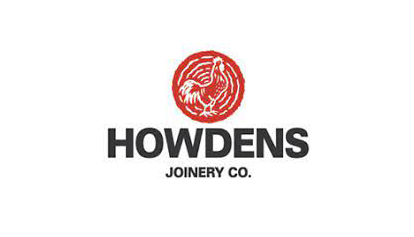
- Details
- Category: Resources
In the words of sports Performance Coach, Owen Eastwood who transformed the performance of teams that include golf’s Ryder Cup team and Gareth Southgate’s England.
“If you want to get the best out of people you have to connect them to something bigger than themselves and connect them to people around them.”
“The problem you have in teams is when there’s not enough emotion, not when there’s too much.”
"Individuals connect to a higher purpose than their own and emotional communion between people. 70% of human behaviour is determined by your environment.”
Focus on building a healthy environment, and then fine-tune performance from there."
That is why organisations that successfully deliver lasting improvement, invest time in creating Centres of Excellence where all of the workforce become engaged with actions to eliminate waste and raise performance as part of the daily routine. The reasons are well illustrated by the words of this CI manager after their programme began to deliver outstanding performance.
"In the beginning of the improvement journey, one of our top Production Managers thought, that 90 % of the reasons for ineffective use of the machinery was due to short term technical problems. Today he recognises that time invested in developing people to prevent problems is the route to high performance."
Creating the Environment for Improvement Pull
Our research into the practices of well respected and award winning organisations revealed how they simultaneously develop Team Leader and Front Line Team capabilities to deliver year on year performance gains.
At the heart of that winning approach is a Leadership commitment to
- Deliver improvement pull by engaging the workforce with improvement as part of the daily routine,
- Rather than top down driven initiative push by management edict.
The outcome is a work environment where people engage every day in removing waste and hidden losses by improving the effectiveness of working methods.
The strongest lever that leaders have to deliver that outcome are their conversations with their peers and direct reports. The creation of a formal improvement agenda uses that lever to align cross functional outlook, encourage shared learning and drive engagement with a common set of improvement goals.
These building blocks for improvement pull are built into the TPM Road map to guide the development of team and team leader capability towards industry leading performance.
Each part of the Roadmap is designed to meet the unique challenges of each step from achieving stable operation to releasing the full value adding potential of the operation. A dynamic target that shifts with changing customer expectations for product features, quality, cost and delivery performance.
The Gains
Although their are financial gains throughout the journey, the biggest gains from the TPM Roadmap are from its use as a vehicle to:
- Develop high performance front line teams.
- Release of management and specialist time from day to day operations.
- Use of that time to focus on enhancing added value and advantage.
Creating Centres of Excellence
First steps include a review of current strengths and weaknesses to support working sessions with key Leaders to align priorities and agree practical actions to raise the level of engagement and capability of their direct reports. That can include diagnostic review sessions such as:
- Improving Reliability and Resilience
- Performance Management
- Better projects faster
- Delivering gains from advanced technology
The assessments from these sessions provide answers that matter about:
- Strengths and weaknesses compared to respected and award winning organisations.
- Potential improvement themes and priorities
- Next steps for senior management, functional heads, front line leaders and their teams.
That provides Leaders with a powerful lever to:
- Win hearts and minds and get buy in to new ideas.
- Improve insight into issue/opportunity causal factors and identify next steps.
- Surface barriers (real and imagined) overcome problems, refine ideas and progress them further.
- Guide the introduction of new working practices covering.
- Leadership and direction setting.
- Execution of routine activities and feedback to get better every day.
- Goals and metrics to drive further improvement and sustain the gains.
Support for Next Steps
Following on from the planning the plan sessions, Centre of Excellence programmes simultaneously develop leadership team and front line team capabilities using practical projects to:
- Engage front line improvement teams in systematic improvement cycles.
- Guide the development of Team Leader coaching skills to establish a collective mindset of daily improvement, shared learning and mutual support.
The outcome is the creation of a proactive improvement culture and the release of management and specialist time to carry out higher value adding activities. Typical support programmes involve:
- On site "hands on" workshop to apply principles to 2 to 3 mini pilot projects.
- Pilot programme applications to widen understanding, surface gaps and capture lessons learned as policy guidelines
- Roll out cascade to establish an internal improvement leader network that will raise standards develop skills and deliver lasting improvement.
These support plans link training courses and coaching plans to raise capabilities, provide real time feedback and guidance on how to resolve implementation issues.
Click on the links below for more information about potential support plans or use our contact form to find out how we can support your Centre of Excellence programme








